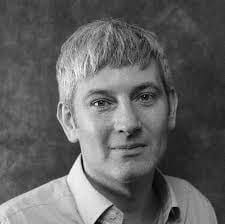“How do people represent experiences in a format that doesn’t just remember what happened, but remembers it in a way that’s useful and flexible?”

An interview with Bradley Love, PhD (Professor, UCL)
By Laura Zaneski
Friday, April 22, 2022
Have you always been interested in studying the mind?
That’s a good question. When I first began university as an undergraduate, I had a few interests and a lot of them revolved around the question of how do small elements interact to give rise to a more interesting whole. There are a lot of systems like that in biology and in social sciences, such as economics. But the most interesting one was in cognitive science. In the brain, how do you get all of these little elements and regions and experiences, and how do they all coalesce into something larger? I knew from like my first semester that out of all of the options, that was the one.
What questions are really exciting to you right now?
There’s been this explosion in machine learning and AI. I think a lot of the successes and shortcomings in those fields raise a lot of interesting questions about how humans are so clever. One very basic issue is how do people store information. How do people represent experiences in a format that doesn’t just remember what happened, but remembers it in a way that’s useful and flexible? [For example], people learn how to play one game or do one thing; they can transfer that knowledge to different circumstances, whereas most machines are kind of brittle. [Seeking] the answer to these questions is not just to help machines get better, but also to realize how people pull off this trick of being relative generalists and being flexible. I think that comes down to how do we represent our experiences, how do we understand the world – that’s the big question for me.
What kind of impact do you hope your research will have?
What I do is pretty basic. There’s a lot of angles to take, [such as] from behavior to a more long-range applications like medical decisions. But I think for all these things, we have to have some basic understanding of how people learn from examples and how they learn to attend to what’s relevant. Building up that picture of how things work should be useful for understanding. [Especially this is true for] when things don’t go so well and someone is experiencing some difficulty and may need some treatment. I’ve done a lot of work just looking at human behavior in the real world. One application I’m talking about [has to do with making decisions in a grocery store]. [For instance], what are ways we can help people make better decision-making decisions and eat healthier. Ideally, we’d do this without pushing people to do this or that; we’d just naturally elicit behaviors that the people themselves would like to display. I find the back-and-forth between the lab and naturalistic settings to be a useful way to advance theory and evaluate the potential for application.
What impact has your research had?
I think there’s a lot of examples in cognitive science of things that may not have looked completely useful or likely to have an impact at the time and then they really did. Psychologists, for example, are at the forefront of things like the development of signal detection theory, which is really important in engineering. The neural network work [that] came out of psychology and neuroscience has really revolutionized work in machine learning. I think there are all these gems waiting to be discovered because of the nature of the problems in cognitive science. They’re so challenging and broad that if we take on those challenges, I think it’s just bound to have numerous impacts in the world. That’s not just wishful thinking on my part because there’s been a lot of cross-fertilization to other areas that are more applied, that have had impact. So hopefully, I could be a part of that.
To learn more about Dr. Love and his work, click here.
Click here to go back to the Interviews with Scientists main page.
